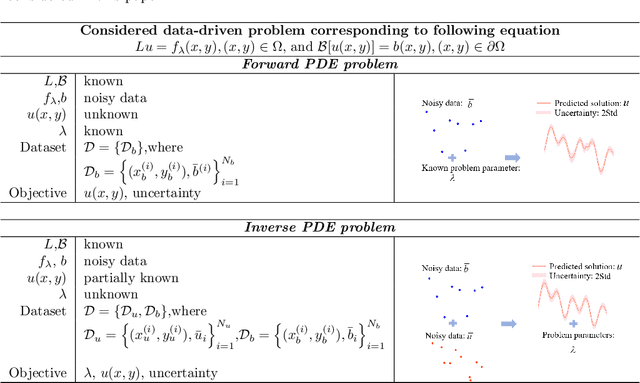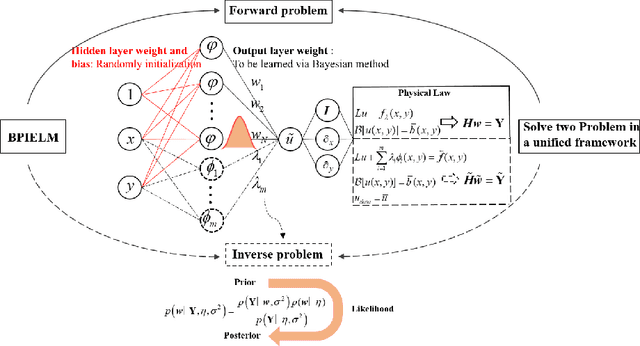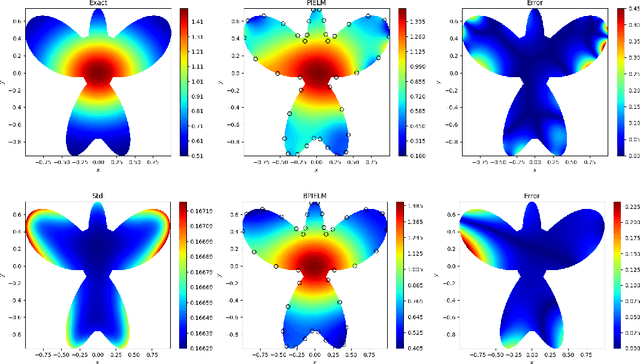Bayesian Physics-Informed Extreme Learning Machine for Forward and Inverse PDE Problems with Noisy Data
Paper and Code
May 14, 2022



Physics-informed extreme learning machine (PIELM) has recently received significant attention as a rapid version of physics-informed neural network (PINN) for solving partial differential equations (PDEs). The key characteristic is to fix the input layer weights with random values and use Moore-Penrose generalized inverse for the output layer weights. The framework is effective, but it easily suffers from overfitting noisy data and lacks uncertainty quantification for the solution under noise scenarios.To this end, we develop the Bayesian physics-informed extreme learning machine (BPIELM) to solve both forward and inverse linear PDE problems with noisy data in a unified framework. In our framework, a prior probability distribution is introduced in the output layer for extreme learning machine with physic laws and the Bayesian method is used to estimate the posterior of parameters. Besides, for inverse PDE problems, problem parameters considered as new output layer weights are unified in a framework with forward PDE problems. Finally, we demonstrate BPIELM considering both forward problems, including Poisson, advection, and diffusion equations, as well as inverse problems, where unknown problem parameters are estimated. The results show that, compared with PIELM, BPIELM quantifies uncertainty arising from noisy data and provides more accurate predictions. In addition, BPIELM is considerably cheaper than PINN in terms of the computational cost.
 Add to Chrome
Add to Chrome Add to Firefox
Add to Firefox Add to Edge
Add to Edge